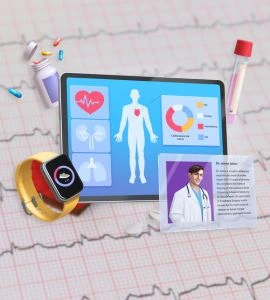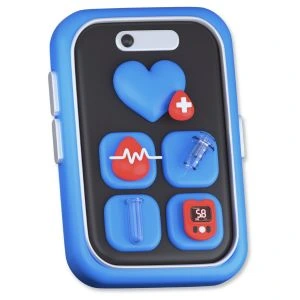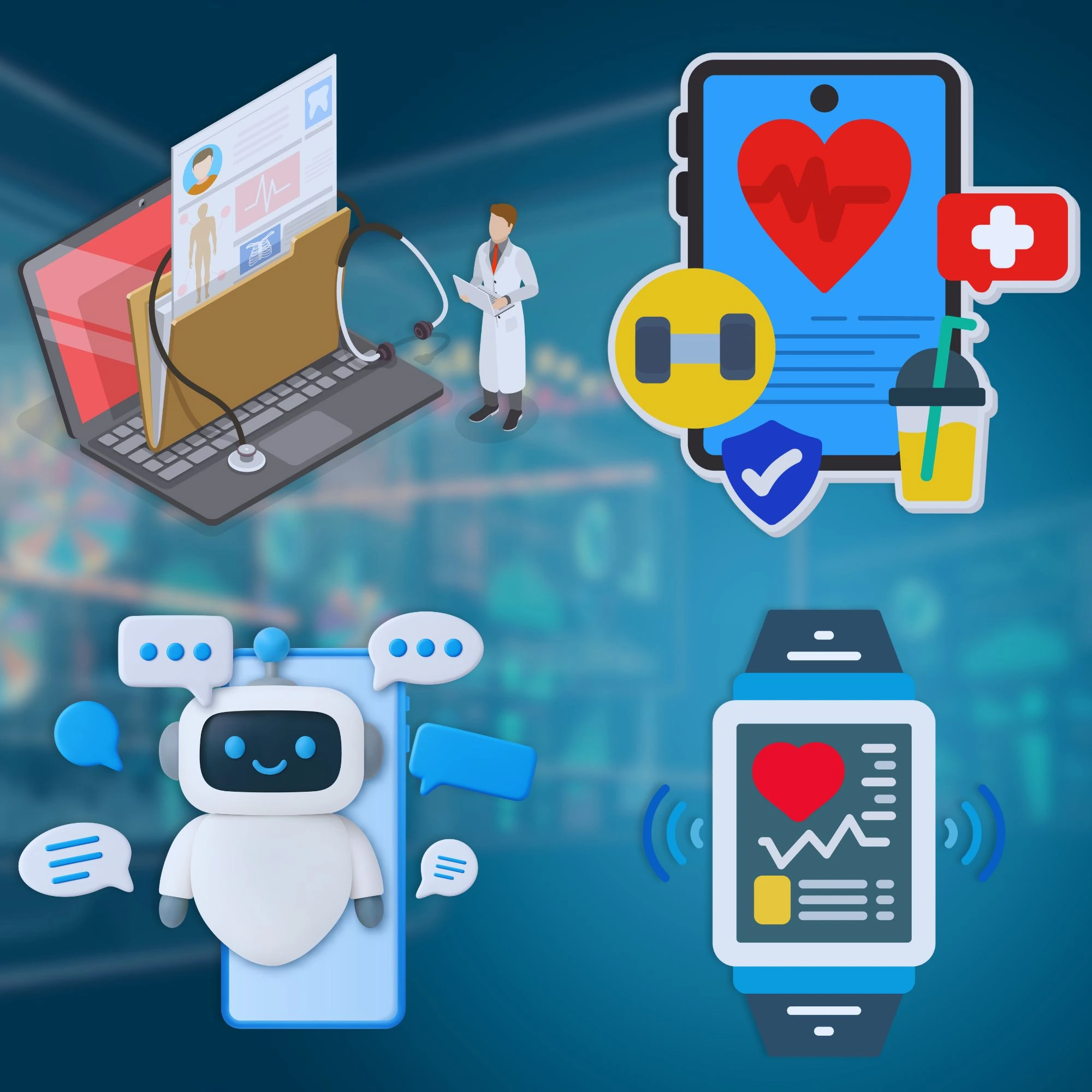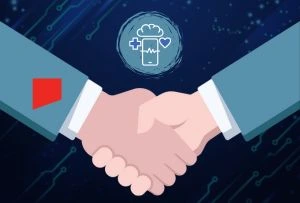Empowering personalized, connected, and future-ready healthcare experiences with Experion Technologies.
Healthcare is no longer confined to hospital visits or episodic interactions. Patients today demand convenience, personalization, and around-the-clock access to care providers. This growing expectation has accelerated the adoption of digital patient engagement platforms and digital patient engagement software, reshaping the way providers connect with patients. By embracing digital health patient engagement, healthcare organizations can move beyond traditional care models to deliver seamless, always-on experiences that improve outcomes, build loyalty, and elevate the overall digital patient experience.
Forward-thinking providers are increasingly turning to patient engagement software solutions and digital patient engagement tools to meet these new demands. Whether through patient portals, mobile apps, or remote monitoring devices, digital patient engagement solutions are bridging the gap between care delivery and patient expectations, enabling a more proactive and patient-centered approach to healthcare.
What is Digital Patient Engagement?
 Digital Patient Engagement refers to the strategic use of technology to strengthen the way patients connect with healthcare providers, services, and health information throughout their care journey. It is more than just a digital interface; it represents a shift in how patients take part in their health management. By combining communication tools, education resources, remote monitoring, and self-service capabilities, a strong digital patient engagement solution empowers individuals to play an active role in improving their own outcomes.
Digital Patient Engagement refers to the strategic use of technology to strengthen the way patients connect with healthcare providers, services, and health information throughout their care journey. It is more than just a digital interface; it represents a shift in how patients take part in their health management. By combining communication tools, education resources, remote monitoring, and self-service capabilities, a strong digital patient engagement solution empowers individuals to play an active role in improving their own outcomes.
Unlike traditional models where patient interactions were limited to in-person visits, digital health patient engagement enables a continuous connection between patients and providers. Whether it is accessing medical records online, joining a virtual consultation, or receiving reminders via a mobile app, the focus is on creating seamless, patient-centered experiences that build trust and loyalty.
Importance of a Patient Engagement Software or Digital Patient Engagement Platform
 In today’s healthcare landscape, implementing a digital patient engagement platform is no longer a value-add but a necessity. Patients expect the same convenience, personalization, and responsiveness from healthcare that they already experience in retail, banking, and other digital-first industries. The rapid adoption of telehealth, accelerated digital transformation during the pandemic, and a broader shift toward consumer-driven healthcare have pushed providers to reimagine patient interaction strategies.
In today’s healthcare landscape, implementing a digital patient engagement platform is no longer a value-add but a necessity. Patients expect the same convenience, personalization, and responsiveness from healthcare that they already experience in retail, banking, and other digital-first industries. The rapid adoption of telehealth, accelerated digital transformation during the pandemic, and a broader shift toward consumer-driven healthcare have pushed providers to reimagine patient interaction strategies.
A well-designed digital patient engagement software supports this shift by delivering multiple benefits:
- Enhances patient satisfaction through easier access to information and services.
- Reduces no-shows with automated reminders and real-time scheduling tools.
- Strengthens the digital patient experience by offering personalized content, secure communication, and proactive health management.
- Enables healthcare organizations to thrive in value-based care models where outcomes and patient loyalty are directly linked to success.
Forward-looking providers that invest in patient engagement software solutions and digital patient engagement tools are not only improving operational efficiency but also creating a more meaningful partnership with patients. These digital capabilities are setting the foundation for a future where digital patient health becomes an integral part of overall care delivery.
The Evolution of Patient Health Engagement

The journey of patient digital health has undergone a remarkable transformation. What once centered exclusively on in-person visits and episodic interactions has evolved into a hybrid, digital-first model where patients remain connected to their providers before, during, and after clinical encounters. This evolution reflects the growing importance of digital patient engagement solutions in shaping modern healthcare delivery.
Key Drivers
- Smartphones and Wearables: The widespread use of mobile devices and connected health trackers has empowered patients to monitor their own health, schedule appointments, and access results anytime, fueling demand for digital patient engagement platforms.
- Regulatory Pushes: Requirements such as HIPAA compliance and secure data-sharing mandates have encouraged healthcare providers to adopt digital patient engagement software that ensures privacy while supporting efficient communication.
- Consumer Demand: Patients increasingly expect the same level of convenience, transparency, and personalization from healthcare that they already receive from other digital-first industries. This shift has made the digital patient experience a key differentiator for providers.
Reimagine healthcare with Experion, delivering digital patient engagement that puts people first
Core Pillars of Digital Patient Engagement
Modern healthcare organizations rely on several foundational elements to deliver meaningful engagement through patient engagement software solutions:
- Omnichannel Communication: Secure messaging systems, mobile apps, and patient portals create always-on accessibility and allow patients to engage across their preferred channels.
- Personalized Care Journeys: AI-powered analytics provide customized recommendations, proactive follow-ups, and treatment plans tailored to individual health needs, enhancing digital patient health outcomes.
- Remote Monitoring and Telehealth: Connected devices and telemedicine extend engagement beyond the hospital, enabling continuous care for chronic conditions and post-discharge monitoring.
- Education and Self-Service: Interactive content, FAQs, and decision-support tools empower patients to manage their own care more effectively, making digital patient engagement tools central to building trust and knowledge.
By focusing on these pillars, healthcare organizations can deliver a robust digital patient engagement experience that not only improves clinical outcomes but also builds stronger, more loyal relationships with patients.
Digital Patient Engagement Tools Powering Patient Health

A strong digital patient engagement platform brings together multiple tools that enhance how patients connect with their providers and manage their health. These technologies not only improve clinical outcomes but also strengthen trust and loyalty by creating a seamless digital patient experience.
- Patient Portals: Centralized platforms where patients can access medical records, lab results, prescriptions, and schedule appointments. Portals are often at the core of patient engagement software solutions, providing transparency and convenience.
- Mobile Apps: Mobile-first digital patient engagement tools allow patients to schedule visits, receive secure messages, and view test results on the go, ensuring healthcare is always within reach.
- Telemedicine Platforms: Virtual consultation systems integrated with EHRs expand access to care, reduce wait times, and keep patients engaged regardless of location.
- AI and Chatbots: Intelligent assistants available 24/7 to handle triage, send medication reminders, and offer personalized recommendations, enhancing digital health patient engagement.
- Wearables and IoT Devices: Smartwatches, fitness trackers, and connected devices continuously monitor chronic conditions and share real-time data with providers, enabling proactive care.
- Data Analytics and CRM: Insights drawn from patient data help providers deliver personalized outreach, close care gaps, and improve engagement outcomes.
Technologies Driving Digital Patient Engagement

Behind every successful digital patient engagement solution is a set of enabling technologies that ensure scalability, security, and innovation.
- Cloud-Based Platforms: Provide secure, scalable infrastructure to store sensitive health data and deliver services across multiple devices.
- Artificial Intelligence and Predictive Analytics: Improve early detection of conditions, personalize care plans, and predict patient needs before they arise.
- Internet of Things (IoT): Connects devices and wearables to create a continuous flow of real-time health data, enhancing patient digital health monitoring.
- Virtual and Augmented Reality: Transform patient education and therapy by delivering immersive experiences for training, rehabilitation, or chronic disease management.
- Blockchain: Strengthens trust by ensuring transparent, tamper-proof storage and sharing of electronic health records.
By integrating these tools and technologies, healthcare organizations can unlock the full potential of digital patient engagement software, transforming the way patients experience care and enabling providers to deliver smarter, more personalized health services.
Empower patients. Improve outcomes. Transform healthcare
Benefits of Digital Patient Experience for Healthcare Organizations
Implementing digital patient engagement solutions delivers measurable benefits that go far beyond convenience. By creating a connected and proactive care environment, healthcare organizations can improve outcomes, enhance patient relationships, and achieve long-term sustainability.
- Improved Patient Satisfaction, Loyalty, and Trust: A seamless digital patient experience strengthens provider–patient relationships, making patients more likely to remain engaged and loyal.
- Better Clinical Outcomes Through Continuous Engagement and Monitoring: Remote care tools, wearables, and digital patient engagement software enable proactive intervention, reducing hospitalizations and improving health results.
- Reduced No-Shows and Improved Efficiency with Automated Communication: Appointment reminders, secure messaging, and real-time notifications lower missed visits and free up staff resources.
- Revenue Growth Supported by Patient Retention and Value-Based Care: By keeping patients engaged, organizations achieve stronger retention rates and deliver on value-based care models, which reward improved outcomes and satisfaction.
Challenges and Barriers
While the benefits are substantial, organizations adopting digital patient engagement platforms often face hurdles that must be addressed to ensure long-term success.
- Data Security and Privacy: With sensitive health data at stake, compliance with HIPAA, GDPR, and other regulatory standards is critical. Patient engagement software solutions must prioritize encryption, role-based access, and secure data exchange.
- Integration with Legacy EHRs: Many healthcare providers rely on outdated systems that can be difficult to integrate with modern digital patient engagement software, creating data silos and workflow disruptions.
- Digital Divide: Not all patients have equal access to technology. Providers must account for elderly individuals, underserved populations, and those without smartphones or reliable internet access.
- Change Management: Introducing new digital patient engagement tools requires training for staff and workflow alignment. Resistance to change can hinder adoption unless organizations create clear strategies and support structures.
By overcoming these challenges, healthcare providers can unlock the full value of digital health patient engagement, building platforms that are secure, inclusive, and future-ready.
Strategies to Implement Digital Patient Engagement Successfully
 Adopting digital patient engagement solutions requires more than just deploying technology. Healthcare organizations need a structured, patient-first approach that ensures scalability, compliance, and measurable results.
Adopting digital patient engagement solutions requires more than just deploying technology. Healthcare organizations need a structured, patient-first approach that ensures scalability, compliance, and measurable results.
- Conduct Readiness Assessments to Evaluate Digital Maturity: Before adopting a digital patient engagement platform, providers should assess existing workflows, infrastructure, and patient needs to identify gaps and opportunities.
- Choose the Right Digital Patient Engagement Platform and Technology Stack: Selecting a secure, scalable, and interoperable system is key. A robust digital patient engagement software must integrate seamlessly with EHRs and other clinical systems.
- Design Patient-Centric Interfaces with Intuitive UI/UX: Usability is critical to adoption. Patient engagement software solutions should be designed for accessibility across demographics, including elderly and underserved populations.
- Ensure Data Security and Compliance are Built-In: Compliance with HIPAA, GDPR, and other regulatory requirements must be embedded at the architecture level to protect sensitive health data.
- Establish Feedback Loops with Real-Time Analytics: Continuous improvement depends on monitoring user behavior and outcomes. Analytics-driven feedback helps refine digital patient engagement tools and optimize experiences over time.
Measuring Success in Digital Patient Health
Implementing a digital patient engagement solution is only the first step. Measuring impact through the right metrics ensures organizations know whether their initiatives are truly improving patient outcomes and satisfaction.
Key Performance Indicators (KPIs)
- Patient Satisfaction Scores (NPS, CSAT): Track loyalty, trust, and overall experience.
- Appointment Adherence Rates and Reduced No-Shows: Evaluate operational efficiency and patient reliability.
- Portal and Mobile App Adoption Rates: Measure how effectively patients are embracing digital patient engagement software.
- Clinical Outcomes and Reduced Readmissions: Assess whether digital patient health initiatives are driving measurable improvements in care delivery.
Real-Time Monitoring
Advanced analytics dashboards give providers continuous visibility into patient behavior, engagement levels, and outcomes. By leveraging digital patient engagement tools and real-time data, healthcare organizations can refine strategies quickly and ensure that both clinical and operational goals are met.
The Future of Digital Patient Engagement Solutions

The future of healthcare is being defined by smarter, more connected, and patient-centered technologies. Digital patient engagement solutions are set to evolve from simple portals into intelligent ecosystems that proactively guide patients through their health journeys.
- AI and Predictive Analytics: By analyzing health patterns, providers can anticipate patient needs, deliver proactive interventions, and improve population health management. AI-powered digital patient engagement tools will also personalize care journeys in real time.
- Voice Technology and Virtual Health Assistants: Conversational platforms make healthcare more accessible, particularly for elderly or less tech-savvy patients, while supporting 24/7 engagement.
- Integration with Ecosystems: The future of patient digital health lies in creating holistic networks that connect pharmacies, insurers, community health centers, and hospitals for seamless care.
- Emerging Standards like FHIR: Standards such as FHIR are driving true interoperability, ensuring that digital patient engagement software can exchange data securely and efficiently across platforms and providers.
As these innovations mature, healthcare organizations adopting digital patient engagement platforms will gain a strong competitive edge by delivering personalized, efficient, and proactive care.
How Experion Can Help You in Digital Patient Engagement?
 At Experion Technologies, we design and deliver next-generation digital patient engagement solutions that empower providers to build meaningful, lasting connections with their patients. Our patient engagement software solutions are built with innovation, compliance expertise, and a user-first approach at their core.
At Experion Technologies, we design and deliver next-generation digital patient engagement solutions that empower providers to build meaningful, lasting connections with their patients. Our patient engagement software solutions are built with innovation, compliance expertise, and a user-first approach at their core.
From intuitive digital patient engagement platforms and telehealth applications to AI-powered chatbots and wearable integrations, we help healthcare organizations transform care delivery into an experience that is connected, secure, and future-ready. By combining deep domain expertise with modern technologies such as cloud, AI, and IoT, Experion enables providers to create engagement strategies that drive both better outcomes and stronger patient loyalty.
Reimagine healthcare with Experion, delivering digital patient engagement that puts people first
Case Study: HIPAA-Compliant Telehealth Platform for Behavioral Health & Wellness
A leading provider of behavioral health and wellness services sought to modernize their telehealth offering. Their existing system relied on multiple disconnected components, a call center app, a customer management app, and a legacy account builder. These fragmented systems led to frequent outages, high infrastructure costs, and compliance risks.
The Challenge
- The identity server (authentication & authorization) was embedded directly in the API layer, reducing scalability and making the system vulnerable to overload.
- Daily API requests ranged from 1.4 million to 2.1 million for just 25–35 concurrent users, causing system downtime, performance degradation, and occasional data loss — risks that jeopardized HIPAA compliance.
- The user interface was outdated, making it difficult for stakeholders across the platform to use the system efficiently.
Experion’s Solution
Using digital patient engagement software and deep domain expertise, Experion delivered a more scalable, resilient, and user-centric system:
- Introduced a client-side queuing mechanism and batch processing (via a browser service worker) to reduce real-time API calls. Commands are queued locally and synced in intervals, significantly cutting request volume and infrastructure costs.
- Separated the authentication mechanism into its own microservice, removing it from API logic and improving modularity, scalability, and security.
- Redesigned the user interface to be intuitive, facilitating better interaction for multiple user roles across behavioral health services.
- Developed resilience mechanisms to prevent data loss during system failures, preserving the integrity of health records and compliance.
- Post-delivery, continued providing development and maintenance support as part of an ongoing engagement.
Business Impact
- The system architecture became highly modular and scalable, allowing new features to be introduced without disrupting core services.
- API requests were reduced from ~1.48 million to ~990,000 per day, significantly easing backend load.
- Average compute usage (DTU) dropped from about 60% to 4%, resulting in substantial infrastructure savings.
- The client saved over $75,000 annually in infrastructure costs.
- Improved stability, performance, and compliance, crucial for a digital patient engagement platform used in behavioral health.
Conclusion
Digital patient engagement has emerged as the foundation of modern healthcare. By adopting the right tools, technologies, and strategies, providers can deliver care that is accessible, personalized, and future-ready. From real-time portals and mobile apps to AI-driven chatbots and remote monitoring, the ability to engage patients digitally ensures stronger relationships, better outcomes, and greater operational efficiency. Healthcare organizations that embrace this transformation will be well-positioned to thrive in a digital-first ecosystem where patient expectations continue to rise.
Key Takeaways
- A digital patient engagement platform enables 24/7, personalized access to care across multiple touchpoints.
- Digital patient engagement software enhances satisfaction, compliance, and efficiency while reducing no-shows.
- Digital patient engagement tools like wearables, mobile apps, and chatbots empower patients beyond the clinic.
- Digital patient health solutions support proactive care, continuous monitoring, and improved clinical outcomes.
- Robust patient engagement software solutions ensure scalability, security, and compliance with HIPAA, GDPR, and other standards.
- Data analytics and predictive insights make digital patient experience strategies measurable and adaptable.
- Successful adoption requires overcoming challenges such as EHR integration, digital divide, and change management.
- Future-ready organizations will integrate AI, IoT, and interoperability standards like FHIR into their digital patient engagement solutions.
- Experion Technologies partners with healthcare providers globally to deliver secure, scalable, and patient-centered digital engagement platforms that create measurable impact.
Final Experion Capability Conclusion
At Experion Technologies, we believe digital patient engagement is not just about technology but about transforming healthcare into a connected, patient-first experience. Our expertise in building digital patient engagement platforms, software, and tools ensures providers can deliver secure, compliant, and scalable solutions that meet today’s demands while preparing for tomorrow’s innovations. Whether it is telehealth, wearables, AI-driven apps, or data-driven platforms, Experion helps healthcare organizations design digital-first strategies that empower patients and improve care delivery.
Is your healthcare organization ready to reimagine patient engagement?
Partner with Experion Technologies to create future-ready solutions that enhance outcomes, build loyalty, and transform care.

